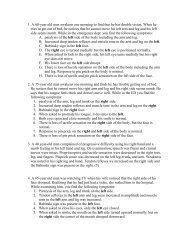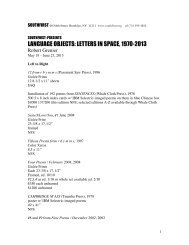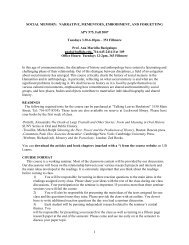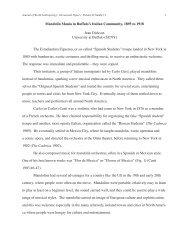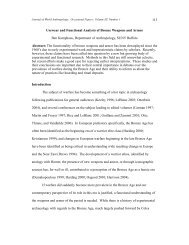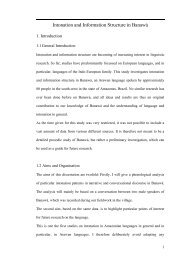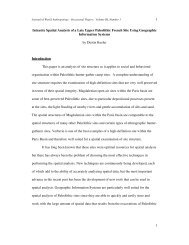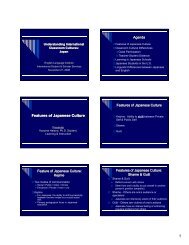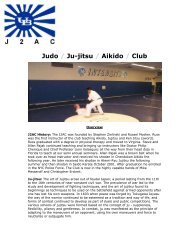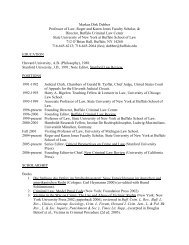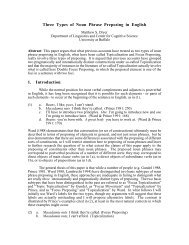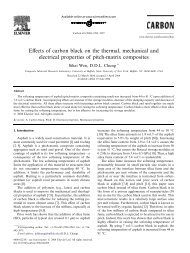Electrophysiological Evidence for Sentence Comprehension - Wings
Electrophysiological Evidence for Sentence Comprehension - Wings
Electrophysiological Evidence for Sentence Comprehension - Wings
Create successful ePaper yourself
Turn your PDF publications into a flip-book with our unique Google optimized e-Paper software.
Experiment 2('tense'). The experiment was similar in every detail, but the target word.<br />
The experiment consists of 200 sentences, one hundred in violation and one hundred in<br />
non-violation condition. Each sentence consists of four (phonological) words with the<br />
target word in the sentence final position. The experiment manipulates two tenses: future<br />
and past tense. Future tense is built with the clitic present <strong>for</strong>m of the auxiliary verb ‘to<br />
have’ and the main verb in Infinitive. Past tense is build with the clitic present <strong>for</strong>m of the<br />
auxiliary verb ‘to be’ and the main verb in Participle. Every verb in Croatian has two<br />
stems: present and infinitive. As both Infinitive and Participle are built from the infinitive<br />
stem, the target words differ only in the final morpheme. Since the tense is manipulated<br />
in the experiment, it will be referred to as the ‘tense’ experiment.<br />
The non-violation condition consists of 100 sentences. Every sentence begins with the<br />
subject followed by the auxiliary verb. They <strong>for</strong>m one phonological word. Temporal<br />
adverb or adverbs and/or the object follow. Finally, the main verb in Infinitive or<br />
Participle occupies the final position in the sentence. Half of the sentences were in the<br />
past tense, while the other half in the future tense. The glossed example shows a non-<br />
violation condition sentence taken from the stimulus set:<br />
(21) Zvon-a će sutra u podne zazvoni-ti.<br />
Bell-Nom.Pl. AUX tomorrow at noon ring-Inf.<br />
'The bells will ring tomorrow at noon.'<br />
The auxiliary verb defines the tense, i.e. makes the expectations regarding the <strong>for</strong>m of the<br />
main verb. If it is će (3 rd person Pres. Sg. ‘to have’), Infinitive is required, if it is je (3 rd<br />
person Pres. Sg. ‘to be’), Participle is required.<br />
71



